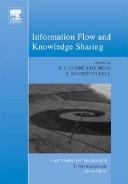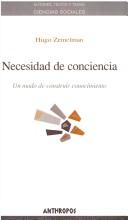| Listing 1 - 10 of 70 | << page >> |
Sort by
|
Book
ISBN: 0892641207 0472901788 Year: 1996 Publisher: Ann Arbor : Center for Chinese Studies, University of Michigan,
Abstract | Keywords | Export | Availability | Bookmark
 Loading...
Loading...Choose an application
- Reference Manager
- EndNote
- RefWorks (Direct export to RefWorks)
Inquiry (Theory of knowledge) --- Social epistemology --- S12/0217 --- Epistemology, Social --- Knowledge, Theory of --- Social role --- Knowledge, Sociology of --- China: Philosophy and Classics--Epistemology --- China --- Civilization
Periodical
Year: 1997 Publisher: Santiago, Chile : Universidad de Chile, Facultad de Ciencias Sociales,
Abstract | Keywords | Export | Availability | Bookmark
 Loading...
Loading...Choose an application
- Reference Manager
- EndNote
- RefWorks (Direct export to RefWorks)
Social epistemology --- Social sciences --- Sociology --- Research --- Chile. --- Speculative Philosophy
Book
Abstract | Keywords | Export | Availability | Bookmark
 Loading...
Loading...Choose an application
- Reference Manager
- EndNote
- RefWorks (Direct export to RefWorks)
"This volume presents the collective adventure of Dingdingdong, the Institute for the Co-production of Knowledge about Huntington’s Disease, founded in 2012 between Paris and Brussels.Katrin Solhdju’s Testing Knowledge: Toward an Ecology of Diagnosis pursues the question of taming the violence of the new species of medical foreknowledge represented by genetic testing. Adopting historical and epistemological perspectives on diagnostic situations, including observations from anthropological field research, speculative storytelling, and ancient oracles, Testing Knowledge proposes a new ecology of predictive diagnostic gestures, which potentially concern us all.Testing Knowledge is preceded by the Dingdingdong collective’s Manifesto (2013), which tells the story of the young Alice Rivières, who in 2006 took the presymptomatic, genetic test, foretelling her that she will eventually develop Huntington’s. Her first-person account of the revelation of her test results, which she experienced as an act of poisoning or cursing, pulls the reader into the manifold ethical, psychological, and existential issues inherent to medical predictions.Testing Knowledge is also preceded by a foreword from Alice Wexler, author of Mapping Fate: A Memoir of Family, Risk, and Genetic Research, and is followed by an afterword by philosopher Isabelle Stengers."

ISBN: 1281762644 9786611762643 0080569900 0444529357 9780444529350 9780080569901 9781281762641 6611762647 Year: 2008 Publisher: Amsterdam Boston Elsevier
Abstract | Keywords | Export | Availability | Bookmark
 Loading...
Loading...Choose an application
- Reference Manager
- EndNote
- RefWorks (Direct export to RefWorks)
Except from the ForewordThe stated aim of the book series ""Capturing Intelligence"" is to publish books on research from all disciplines dealing with and affecting the issue of understanding and reproducing intelligence artificial systems. Of course, much of the work done in the past decades in this area has been of a highly technical nature, varying from hardware design for robots, software design for intelligent agents, and formal logic for reasoning.It is therefore very refreshing to see Information Flow and Knowledge Sharing. This is a courageous book indeed. It is not
Knowledge, Theory of. --- Information theory --- Philosophy. --- Communication theory --- Communication --- Cybernetics --- Epistemology --- Theory of knowledge --- Philosophy --- Psychology
Book
ISBN: 9461663803 9462702713 Year: 2021 Publisher: Leuven (belgium) : Leuven University Press,
Abstract | Keywords | Export | Availability | Bookmark
 Loading...
Loading...Choose an application
- Reference Manager
- EndNote
- RefWorks (Direct export to RefWorks)
Within architecture, tacit knowledge plays a substantial role both within the design process and its reception. This book explores the tacit dimension of architecture in its aesthetic, material, cultural, design-based, and reflexive understanding of what we build. Much of architecture's knowledge resides beneath the surface, in nonverbal instruments such as drawings and models that articulate the spatial imagination of the design process. Tacit knowledge, described in 1966 by Michael Polanyi as what we "can know but cannot tell", often denotes knowledge that escapes quantifiable dimensions of research. Beginning in the studio, where students are guided into becoming architects, the book follows a path through the tacit knowledge present in models, materials, conceptual structures, and the design process, revealing how the tacit dimension leads to craftsmanship and the situated knowledge of architecture-in-the-world. Awareness of the tacit dimension helps to understand the many facets of the spaces we inhabit, from the ideas of the architect to the more hidden assumptions of our cultures.
ARCHITECTURE / Criticism --- Research --- Knowledge, Theory of. --- Architecture --- Philosophy. --- Epistemology --- Theory of knowledge --- Philosophy --- Psychology
Book
ISBN: 9004465480 9004464905 Year: 2021 Publisher: Brill
Abstract | Keywords | Export | Availability | Bookmark
 Loading...
Loading...Choose an application
- Reference Manager
- EndNote
- RefWorks (Direct export to RefWorks)
This study examines the motivations and doctrinal coherence of the Commentary on the Elements of Theology of Proclus written by Berthold of Moosburg, O.P. († c. 1361/1363). It provides an overview of Berthold’s biography and intellectual contexts, his manuscript remains, and a partial edition of his annotations on Macrobius and Proclus. Through a close analysis of the three prefaces to the Commentary, giving special attention to Berthold’s sources, it traces the Dominican's elaboration of Platonism as a soteriological science. The content of this science is then presented in a systematic reconstruction of Berthold’s cosmology and anthropology. The volume includes an English translation of the three fundamental prefaces of the Commentary.. Readership: Students and specialists of medieval philosophy and the history of Platonism, especially those interested in the influence of late-antique Neoplatonism on medieval natural philosophy and theories of contemplation.
Neoplatonism --- Theology --- Philosophy --- Medieval Philosophy --- Epistemology & Metaphysics --- Berthold, --- Proclus, --- Proclus Diadochus.
Book

ISBN: 9048555442 9463722971 Year: 2023 Publisher: Amsterdam : Amsterdam University Press,
Abstract | Keywords | Export | Availability | Bookmark
 Loading...
Loading...Choose an application
- Reference Manager
- EndNote
- RefWorks (Direct export to RefWorks)
aking up the challenges of the datafication of culture, as well as of the scholarship of cultural inquiry itself, this collection contributes to the critical debate about data and algorithms. How can we understand the quality and significance of current socio-technical transformations that result from datafication and algorithmization? How can we explore the changing conditions and contours for living within such new and changing frameworks? How can, or should we, think and act within, but also in response to these conditions? This collection brings together various perspectives on the datafication and algorithmization of culture from debates and disciplines within the field of cultural inquiry, specifically (new) media studies, game studies, urban studies, screen studies, and gender and postcolonial studies. It proposes conceptual and methodological directions for exploring where, when, and how data and algorithms (re)shape cultural practices, create (in)justice, and (co)produce knowledge.
Book
Abstract | Keywords | Export | Availability | Bookmark
 Loading...
Loading...Choose an application
- Reference Manager
- EndNote
- RefWorks (Direct export to RefWorks)
As the author-pay model spreads across academic publishing, what are the possible consequences? Will the current rage for open-source scholarship actually accomplish anything other than shifting the furniture around on the Titanic? Will not Open Source in combination with Digital Humanitiesfurther destroy the very idea of "slow" and "thoughtful" work in humanistic studies?...It would seem that the author-pay model (formerly attributed to predatory publishers) is just another way of extracting tribute for the "privilege" of being published--enforceable only because academia has ratcheted up the stakes by enforcing research metrics and citations, in the public universities a practice that is primarily enforced by external "industrial" connections. Almost all public and private universities are heading toward measuring output with metrics--many academics now tailoring their CVs to show why they are "important," mirroring the social-media campaigns of celebrities and politicians, and many universities now citing their own "corporate" rankings when promoting their product (the University, the Institute, the Department, the Professor). Where this is all going is toward increased precarity for anyone who does not play the game. Individual, solitary scholars will have few options. Gavin Keeney, "Symptom 'A': The End," Knowledge, Spirit, LawKnowledge, Spirit, Law -- as project -- is a de facto phenomenology of scholarship in the age of Cognitive Capitalism. The six essays (plus Appendices) presented here cover topics and circle themes related to the problems and crises specific to neo-liberal academia, while proposing creative paths around the various obstructions. The obstructions include metrics-obsessed academia, circular and incestuous peer review, digitalization of research as stalking horse for text- and data-mining, and violation by global corporate fiat of Intellectual Property Rights and the Moral Rights of Authors. These issues, while addressed obliquely in the main text, definitively inform the various implied proscriptive aspects of the essays and, via the Introduction and Appendices, underscore the necessity of developing new-old means to no obvious end in the production of knowledge -- that is to say, a return to forms of non-instrumentalized intellectual inquiry. To be developed in two concurrent volumes, Knowledge, Spirit, Law will serve as a "moving and/or shifting anthology" of new forms of expression in humanistic studies.
Learning and scholarship. --- Humanities --- Philosophy. --- film studies --- intellectual property --- epistemology --- anti-capitalism
Periodical
ISSN: 14144247 18081711 Year: 1997 Publisher: Florianópolis : Editora da UFSC,
Abstract | Keywords | Export | Availability | Bookmark
 Loading...
Loading...Choose an application
- Reference Manager
- EndNote
- RefWorks (Direct export to RefWorks)
Knowledge, Theory of. --- Knowledge, Theory of --- Théorie de la connaissance --- Periodicals. --- Périodiques --- Arts and Humanities --- Philosophy --- theory of knowledge --- philosophy of science --- philosophy of language --- ontology --- logic --- epistemology --- Epistemology --- Theory of knowledge --- Psychology

ISBN: 8476586302 607628837X Year: 2002 Publisher: El Colegio de México
Abstract | Keywords | Export | Availability | Bookmark
 Loading...
Loading...Choose an application
- Reference Manager
- EndNote
- RefWorks (Direct export to RefWorks)
Este libro expresa las reflexiones que se han formulado sobre el hombre y su historia acerca de lo que es vivir en sociedad y de lo que es luchar por valores e ideas con las que se han tejido infinidad de discursos. El autor busca recrear el discurso sobre la realidad circundante al sujeto como acto constitutivo de éste en su capacidad de actuar con voluntad y emoción. Nos situamos ante la exigencia de desarrollar una argumentación orientada a recuperar al sujeto desde los múltiples planos en que se desenvuelve el movimiento de la realidad, privilegiando los de la existencia y la historia; planos que no pueden reducirse a los objetos propios de las disciplinas científicas convertidas en compartimentos estancos.
Knowledge, Theory of. --- Knowledge, Sociology of. --- Knowledge, Theory of (Sociology) --- Sociology of knowledge --- Communication --- Knowledge, Theory of --- Public opinion --- Sociology --- Social epistemology --- Epistemology --- Theory of knowledge --- Philosophy --- Psychology --- Humanities --- History
| Listing 1 - 10 of 70 | << page >> |
Sort by
|

 Search
Search Feedback
Feedback About
About Help
Help News
News